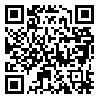Sun, Dec 21, 2025
Volume 15, Issue 2 (Spring 2025)
PTJ 2025, 15(2): 131-140 |
Back to browse issues page
Download citation:
BibTeX | RIS | EndNote | Medlars | ProCite | Reference Manager | RefWorks
Send citation to:



BibTeX | RIS | EndNote | Medlars | ProCite | Reference Manager | RefWorks
Send citation to:
Mahmoudi Z, Mohammadi R, Paknazar F. The Impact of Quadratus Plantae Muscle Dry Needling on Pain and Thickness of the Plantar Fascia in Individuals With Plantar Fasciitis. PTJ 2025; 15 (2) :131-140
URL: http://ptj.uswr.ac.ir/article-1-669-en.html
URL: http://ptj.uswr.ac.ir/article-1-669-en.html
1- Student Research Committee, Semnan University of Medical Sciences, Semnan, Iran.
2- Neuromusculoskeletal Rehabilitation Research Center, University of Social Welfare and Rehabilitation Sciences, Tehran, Iran.
3- Social Determinants of Health Research Center, Semnan University of Medical Sciences, Semnan, Iran.
2- Neuromusculoskeletal Rehabilitation Research Center, University of Social Welfare and Rehabilitation Sciences, Tehran, Iran.
3- Social Determinants of Health Research Center, Semnan University of Medical Sciences, Semnan, Iran.
Abstract: (2710 Views)
Purpose: Plantar fasciitis (PF) is a leading cause of foot discomfort and significantly impacts the overall quality of life. Trigger points dry needling is an alternative treatment for heel pain.
Methods: This study aimed to evaluate the effect of the quadratus plantae muscle dry needling on pain and variations in the thickness of the plantar fascia among individuals with plantar fasciitis using ultrasound imaging. Forty patients in the intervention and control group were taught to massage and stretch the plantar fascia for 2 weeks. The patients in the intervention group underwent quadratus plantae muscle dry-needling twice a week for 2 weeks. Plantar fascia thickness and pain were measured with ultrasound and visual analog scale, respectively. Study variables were measured before the first and last sessions in both groups. To analyze the data, paired t-test, and independent t-test were used with a significance level of 0.05.
Results: No significant difference in pain reduction was shown in between-group comparison (P=0.077). Between-group comparison after 2 weeks of treatment indicated a significant decrease in plantar fascia thickness following dry needling (P<0.001 with a moderate effect of 0.33).
Conclusion: The results of the present study showed that quadratus plantae muscle dry needling is significantly effective in improving pain and reducing plantar fascia thickness in patients with plantar fasciitis.
Methods: This study aimed to evaluate the effect of the quadratus plantae muscle dry needling on pain and variations in the thickness of the plantar fascia among individuals with plantar fasciitis using ultrasound imaging. Forty patients in the intervention and control group were taught to massage and stretch the plantar fascia for 2 weeks. The patients in the intervention group underwent quadratus plantae muscle dry-needling twice a week for 2 weeks. Plantar fascia thickness and pain were measured with ultrasound and visual analog scale, respectively. Study variables were measured before the first and last sessions in both groups. To analyze the data, paired t-test, and independent t-test were used with a significance level of 0.05.
Results: No significant difference in pain reduction was shown in between-group comparison (P=0.077). Between-group comparison after 2 weeks of treatment indicated a significant decrease in plantar fascia thickness following dry needling (P<0.001 with a moderate effect of 0.33).
Conclusion: The results of the present study showed that quadratus plantae muscle dry needling is significantly effective in improving pain and reducing plantar fascia thickness in patients with plantar fasciitis.
Type of Study: Research |
Subject:
Sport injury and corrective exercises
Received: 2024/08/17 | Accepted: 2024/11/19 | Published: 2025/04/1
Received: 2024/08/17 | Accepted: 2024/11/19 | Published: 2025/04/1
Send email to the article author
| Rights and permissions | |
 |
This work is licensed under a Creative Commons Attribution-NonCommercial 4.0 International License. |






